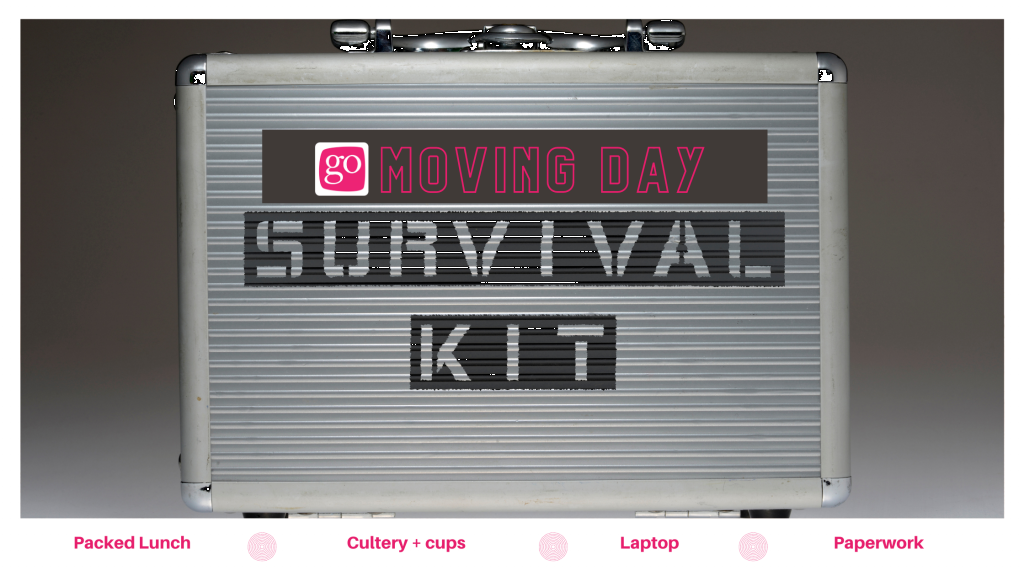Moving house, whether locally or to another country, is a significant life event that requires careful planning and execution. As relocation specialists, we are here to guide you through the essential steps involved in the moving process and highlight key things to remember for a smooth transition. Whether you're moving house within your city or relocating to another country, this comprehensive guide will help you navigate the journey.
Steps for Relocating Houses
Step 1. Planning and Preparation
a. Research and Hire a Relocation Company:
Start by researching reputable moving companies with experience in both local and international moves. Look for reviews and testimonials to ensure their reliability. Get quotes from multiple companies to compare services and prices.
b. Create a Moving Checklist:
Develop a detailed checklist of tasks to complete before, during, and after the move. This will help you stay organised and ensure nothing is overlooked.
c. Set a Budget:
Establish a budget for your move, accounting for all potential expenses, including packing materials, transportation, insurance, and any additional services.
Step 2. Declutter and Organise
a. Sort Through Your Belongings:
Go through each room and decide what to keep, donate, sell, or discard. This will reduce the volume of items to move and help save on costs.
b. Organise Important Documents:
Gather all essential documents, such as passports, visas, medical records, and financial papers. Keep them in a secure and easily accessible place.
Step 3. Notify Relevant Parties
a. Change of Address:
Update your address with the post office, banks, insurance companies, and other relevant institutions. Inform friends and family of your new address.
b. Utilities and Services:
Schedule the disconnection of utilities and services at your old home and arrange for their setup at your new location.
Step 4. Packing and Labelling
a. Gather Packing Supplies:
Obtain high-quality packing materials, including boxes, export wrap, packing paper, and tape. Obviously, if you hire us, we’ll come with these and finish the packing for you!
b. Pack Methodically:
The packing should be done room by room, and each box should be labelled with its content and destination room.
c. Handle Valuables with Care:
Fragile & valuable items should be packed separately, using extra cushioning to prevent damage.
Step 5. Transportation and Moving Day
a. Local Moves:
For local relocations, the moving company will load your belongings onto the truck and transport them to your new home. Ensure clear communication with the movers regarding any special instructions (mention access to the property, large items for doors, will the truck get to both addresses, flights of stairs/lifts etc)
b. International Moves:
For international relocations, the company will handle shipping logistics, including customs documentation and coordination with carriers. Ensure all items meet the destination country's import regulations. Other than this don’t forget to mention details like access to the property, large items for doors, will the truck get to both addresses, flights of stairs/lifts etc.
Step 6. Unpacking and Settling In
a. Unpack Essentials First:
If you are unpacking on your own, start with essential items, such as toiletries, kitchenware, and bedding. This will help you settle in quickly.
b. Arrange Furniture and Decor:
The next task would be to place furniture and décor in their designated rooms. Take your time to create a comfortable and organised living space.
Step 7. Post-Move Tasks
a. Inspect Belongings:
Check all items for damage and report any issues to the moving company promptly.
b. Explore Your New Neighbourhood:
Take time to explore your new surroundings, locate essential services, and meet your neighbours.
Go Expert Golden Nugget: Timing Matters
One of the most crucial yet often overlooked aspects of relocating houses is timing. Plan your move during off-peak seasons, such as late autumn or winter, when moving companies are less busy. This not only increases the likelihood of securing your preferred moving dates but can also result in significant cost savings. Additionally, aim to move mid-month or mid-week when demand is lower, further reducing costs and ensuring a smoother relocation process.
Relocating to another country or moving house locally involves numerous steps and careful planning. By following this guide and keeping these key points in mind, you'll be well-prepared to make your move as stress-free and efficient as possible. Happy moving!



